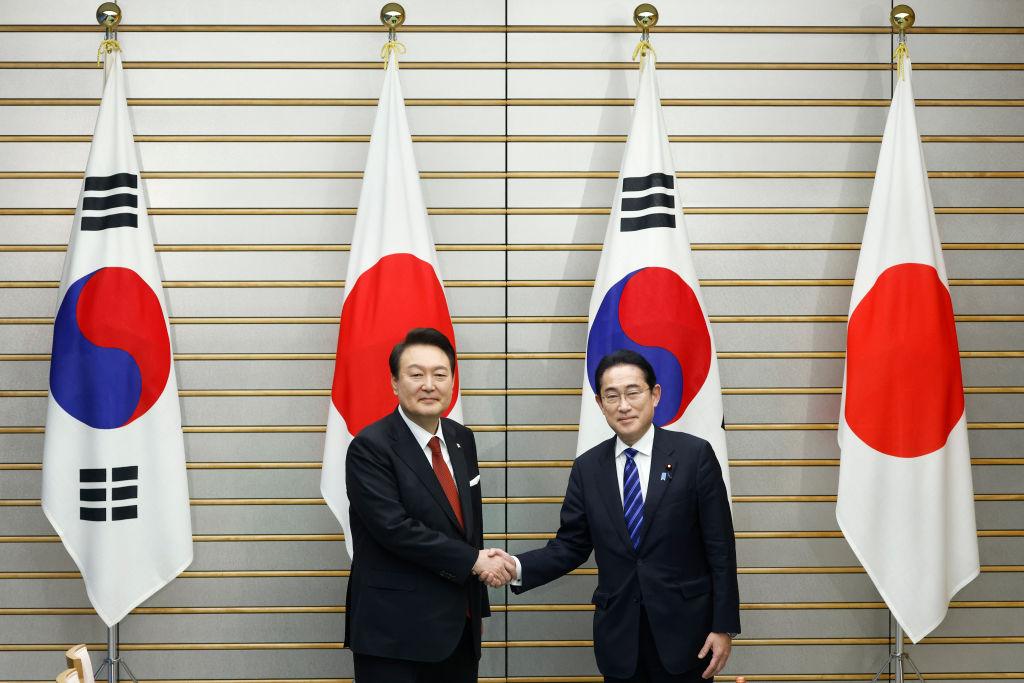South Korea reinstated Japan to its list of preferred trading partners on April 24, marking a step toward improving relations three years after they downgraded each other’s trading status over historical disputes.
Japan’s return to South Korea’s “white list” of preferred trading partners will shorten the review period for exporting strategic materials to Japan to five days from 15, the South Korean Ministry of Trade, Industry, and Energy stated. The number of documents required for such exports will be reduced to three from five, according to the ministry’s public notice. The change took effect on the same day.





